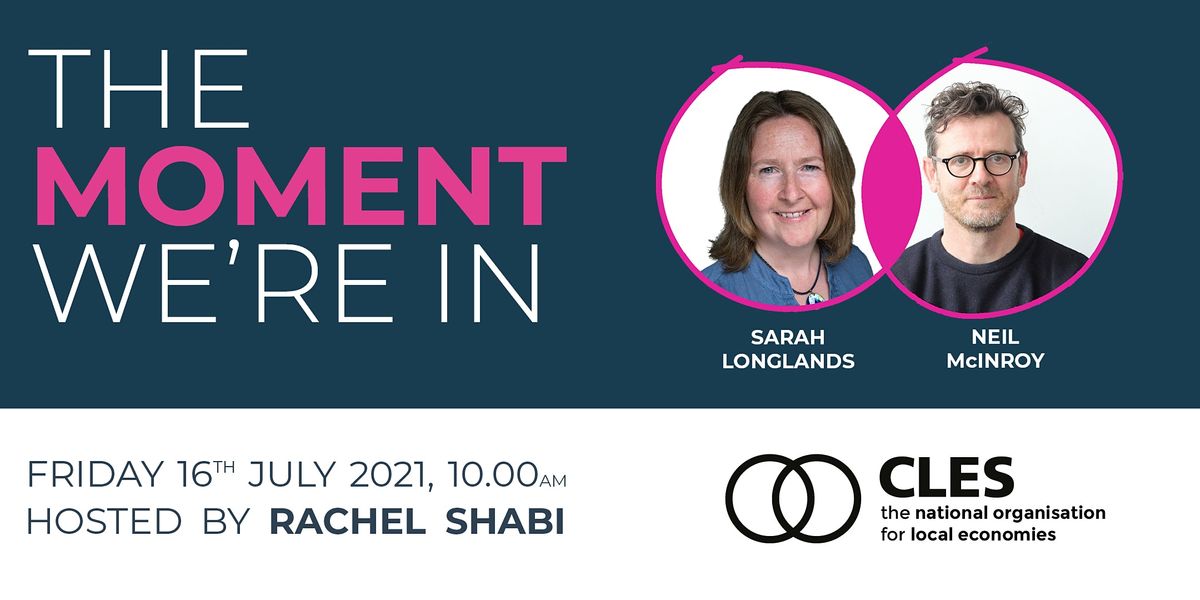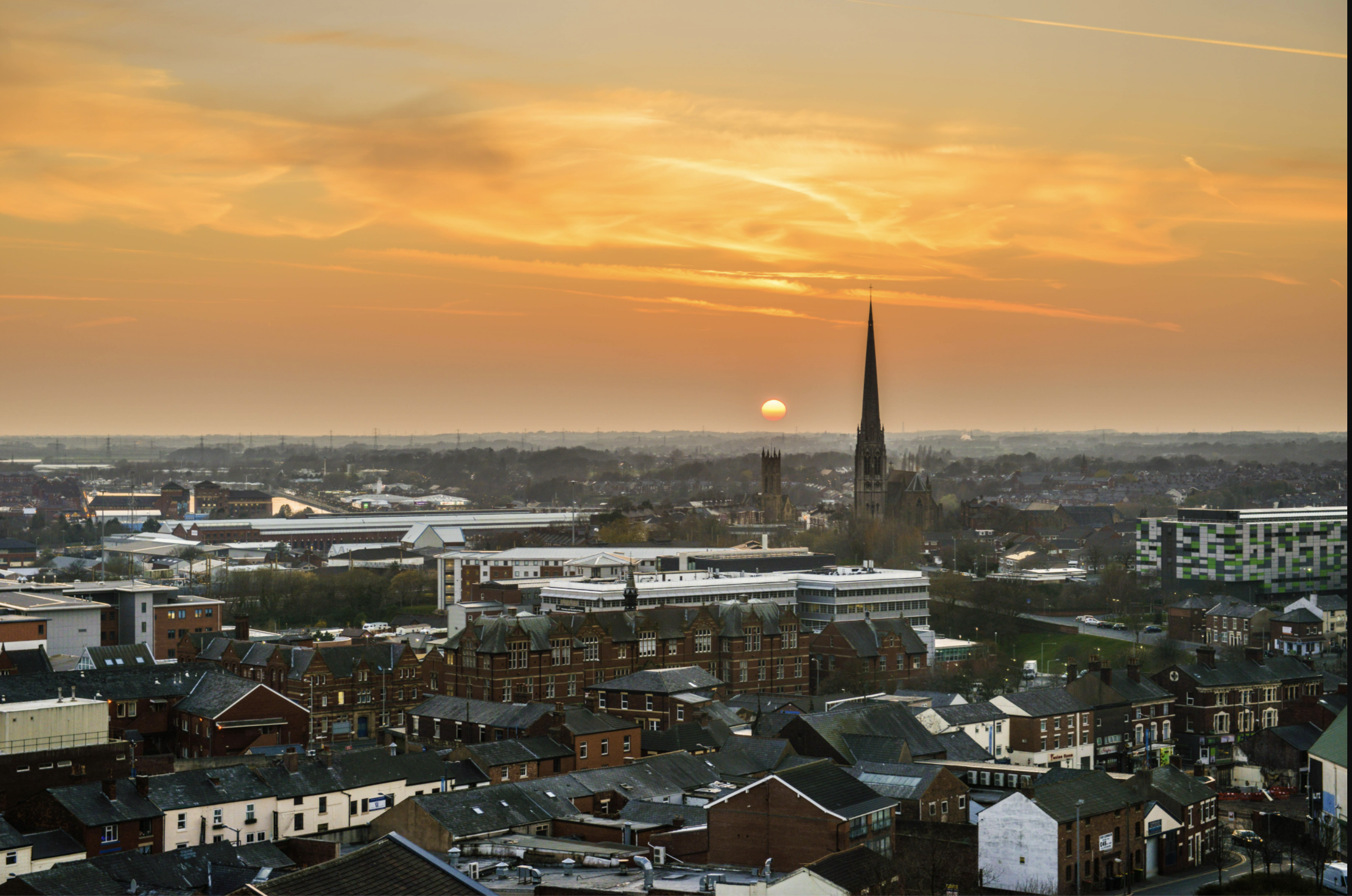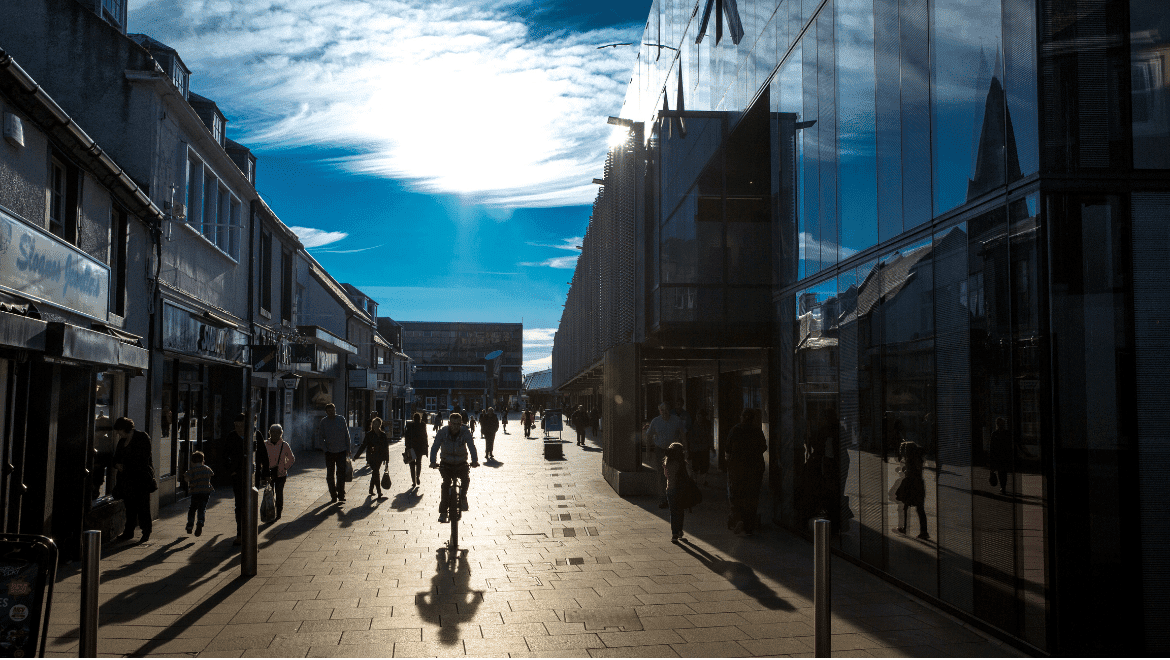Can community wealth building scale up?
Posted on 05 Aug 2021 Categories: Blog, Local initiatives, New economic models, Community Wealth Building, The business we want, The place we want, The state we want
by Caroline Hartnell
Probably the key challenge for all those committed to progressive causes is how we scale up from the multitude of creative initiatives taking place locally. ‘At local level, we are seeing an outburst of creativity,’ wrote Rethinking Poverty’s Barry Knight recently. ‘A key task is to join up the actors seeking different pathways to a good society where everyone can flourish … At some point, the creativity emerging from civil society needs to influence how the state operates.’ A big issue for CLES – the Centre for Local Economic Strategies – is whether community wealth building, defined by CLES as ‘a new people-centred approach to local economic development, which redirects wealth back into the local economy, and places control and benefits into the hands of local people’, can scale up beyond local initiatives to influence the economic mainstream. This was one of the issues discussed by retiring CLES chief executive Neil McInroy, on his final day in his 20 years in the role, and the new chief executive, Sarah Longlands. The webinar, titled ‘The Moment We’re In’, was chaired by journalist Rachel Shabi.

Community wealth building: the potential to scale up
We’re still in the foothills of community wealth building, says Longlands, so we can’t yet understand its full potential or know its limits. She sees linking up with other movements and other progressive ideas as an exciting opportunity. She cites work CLES has been doing with NHS trusts, which are ‘not necessarily big bureaucratic beasts’. As ‘anchor organisations’, they can offer good pay and conditions and help create better lives for their workforce as well as delivering health services. The question for her is how to encourage the private sector to think of themselves in this way too, as part and parcel of communities not just fly-by-night extractors of wealth.
In McInroy’s view, community wealth building is emerging from the foothills into the mainstream of economic thought in some parts of the world. In Chicago, for example, the Office for Equity and Racial Justice has a community wealth building plan. The Scottish government has a minster for community wealth, committed to community wealth building as part of a wellbeing economy. ‘Horizontal power is starting to dig into the vertical,’ he says. ‘This isn’t community development, it’s slowing down and changing extractive fossil fuel capitalism. Community initiatives have to grow, show and tell, influence mainstream thinking.’
A broken economic model
The pandemic has revealed what many of us knew already, says Longlands, ‘that the foundations of our economic model are cracked and creaking. It is failing to deliver a good life for too many people.’ It hasn’t created inequality, she emphasises; it has revealed it, and widened gaps in all areas of life. ‘Our economic system produces untold riches for a few and inequality, misery and poverty for multitudes,’ says McInroy.
Why do we have this runaway inequality? Orthodox economics doesn’t include the ethics of decision making, says Longlands, especially the ethics of care. Decisions about how we treat people should be seen as ‘part and parcel of economics’ not just something for politicians. The pandemic has ‘pulled away the curtains and revealed the ugly truths about our economic model’.
A new economic model?
Economics doesn’t have to be the enemy, she says. The present economic model ‘pits place against place, community against community; it conceptualises human beings as greedy, thirsty and self-interested. But that’s not all we are. Economics can be part of the solution.’
But how? We can stop pursuing growth and start thinking about how we can use economic prosperity more wisely and share the benefits and give everyone a chance to lead a better life. We can stop measuring wellbeing in terms of GDP and focus on people living a life that they have a reason to value. We can stop saying there’s a limited amount of wealth – there’s plenty of wealth in the UK.
CLES believes local economies are the future. ‘We are citizens of place,’ says Longlands. ‘We live and work and set up businesses in the places where we live. We can change things together. We can find a better direction of travel for the economy and people’s lives. We can’t wait for Westminster – that’s why CLES exists.’
We live in ‘oxymoronic times’, says McInroy. On the one hand, we see pain and misery. On the other, there’s hope, a growing sense that things can and must change, that ‘the present crisis is our last and best opportunity to change course’. But we are not on ‘a linear track to a better world’ but ‘a doomed rollercoaster loop’, he warns. We need paradigm shift, a new path, a completely new economic model.
Good is all around us, says McInroy. ‘We’re not just individual human beings, but collectives of social human beings.’ We are seeing thousands of virtuous actions, progressive administrations, movements like Black Lives Matter and civic activism, community land reform, community businesses, reactions against big corporate power, public pension funds divesting from fossil fuels, respect for unionisation, green activism across the country, a belief in democratically owned and run public services. ‘It’s our economy. We can shape it the way we want to nurture us and preserve the planet.’ Community wealth building is trying to harness that energy; it’s horizontal power making real change, creating and reflecting a better way. ‘That’s the moment we’re in.’

How can community wealth building make a difference nationally?
How do we harness local-level activity to create the critical mass needed to make a difference at national level? CLES is looking at how community wealth building can scale up and become part of a new economic model, says Longlands, a paradigm change, not just scattered examples. We need to rewire our economy and our politics. Politics can become a cause of inertia – though this isn’t the case locally, where people are changing things on the ground. ‘The movement for change is going to come from cities, towns, high streets, neighbourhoods where people are experiencing the worst effects of the economy first hand and trying to change it.’ We need to set up our own networks between places that are effecting change, almost bypassing Westminster, she says.
McInroy emphasizes the political. Yes, ‘all of us activists need to collaborate like mad, work together to create energy. And if things work, you sing from the rooftops; persuade by sharing the impact.’ He advocates working with coalitions of anchor institutions – local authorities, universities, the NHS. ‘They have land and resources; they are trees and we are bees.’ But you also need to get political, he says. Issues of climate, racial, social and economic justice are deeply political: it’s about saying you need more power. ‘We need political activism as well as grassroots activism.’
Perils and opportunities ahead
Both McInroy and Longlands see perils ahead as well as opportunities, and both emphasise the importance of the state. The economy needn’t be our enemy; the state isn’t our enemy.
For McInroy, one real peril is that people may see the increased interest in local economies and communities as a chance to revive the Big Society – ‘Cameroonian baloney, public services on the cheap, using volunteers to run things, getting the community to do more.’ Community power shouldn’t mean weakening the state. He’s much more interested in the community taking over the private sector economy – owing more land, taking on the problem of extractive, fossil fuel capitalism, recognising that our commercial economy doesn’t serve us. ‘We need to watch who’s advocating for community power and be aware of what they’re trying to pursue. Community power shouldn’t replace and weaken the state.’
Longlands acknowledges that the pandemic has revitalised the idea of collectivism, the idea that we can work together towards goals that go beyond us as individuals. But, she says, politicians have overemphasised this and underestimated the pain people are feeling. ‘Many people feel completely alienated.’ The crisis has particularly affected people on low incomes, ethnic minority communities, people with disabilities. ‘People need to come together across structural social and political divides. We need to rediscover we own the economy, we own the state. We pay for the state, we should be supporting it to make it what we need. The state shouldn’t be the enemy,’ she says.
Will community wealth building exacerbate inequality?
Will it widen the gaps between areas that are able to pull themselves up and those that have sunk even further and there’s no money for investment? ‘Community wealth building tells us that you can always do something in your own area despite decades of austerity,’ says Longlands. ‘We can rewire some aspects of our local economy, focusing on ownership of resources as well as incomes.’
McInroy also emphasises the importance of ownership. Yes, we need ‘a deep redistributive process, a new national social contract’ but redistribution after the fact of wealth creation isn’t enough. We need pre-distribution, not just redistribution of what is already owned. ‘How do more of us get our dibs on wealth while it’s being created?’ England is in general very barren in policy terms, but this isn’t the case across all of England. And the other countries of the UK have a more fertile enabling context, more pathways to achieve a scaling up of local power. Scotland, for example, has the Community Empowerment Act.
Redemocratisation of the economy is at the heart of the community wealth building movement, says McInroy. In the UK people feel disconnected from the local economy. People are at the mercy of employers and have no sense of control over their economic future. There is much talk about the devolution of political power, he says. ‘We need devolution of economic power. We need to enable local people to be active participants in the rewiring of local economies.’ Workplace democracy, community finance and community ownership are just a few examples of what community wealth building can offer, but they need scaling up.

Watch the webinar here.
Want to keep up-to-date with more articles like this? Sign up to our newsletter.
Posted on 05 Aug 2021 Categories: Blog, Local initiatives, New economic models, Community Wealth Building, The business we want, The place we want, The state we want
